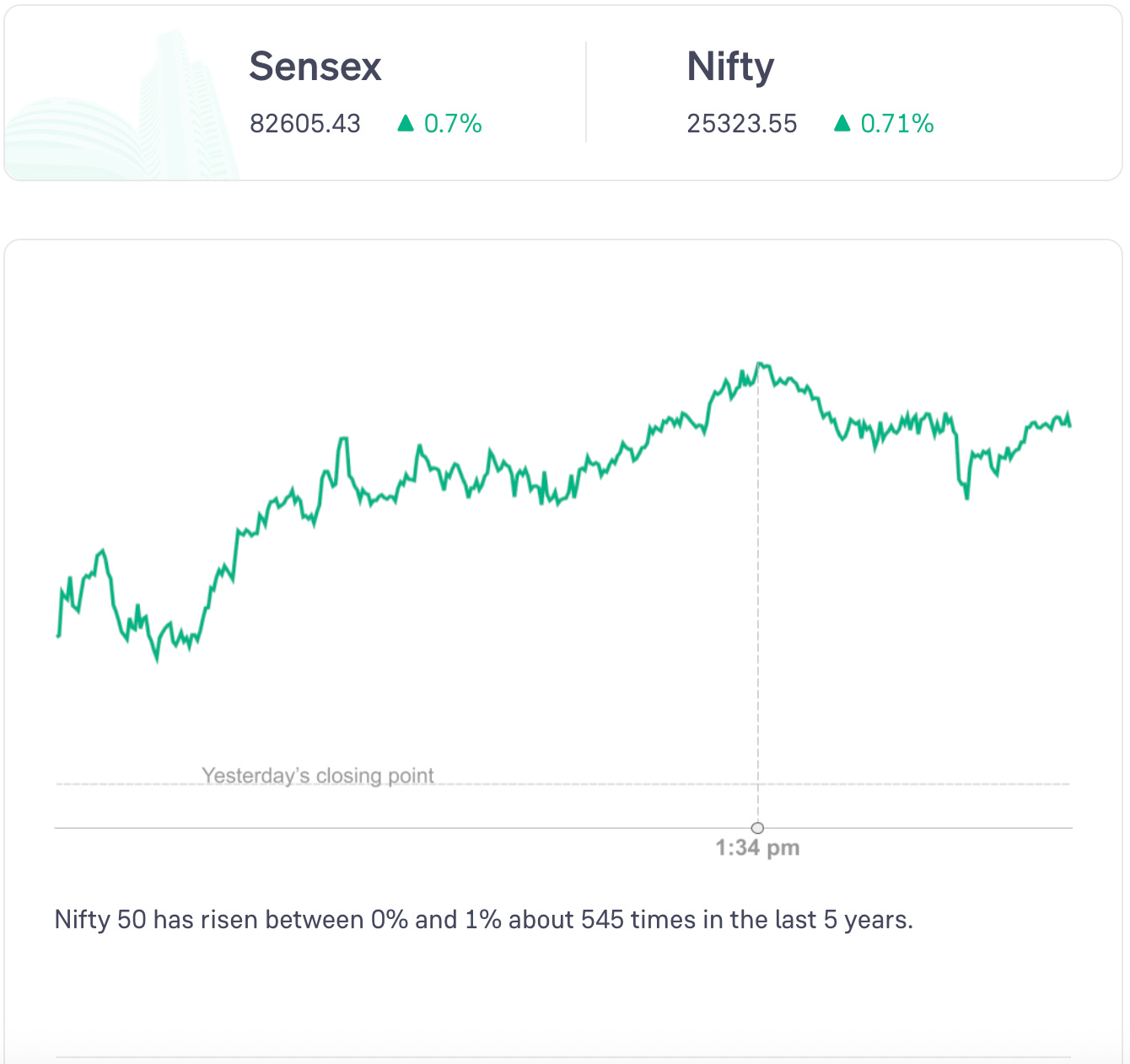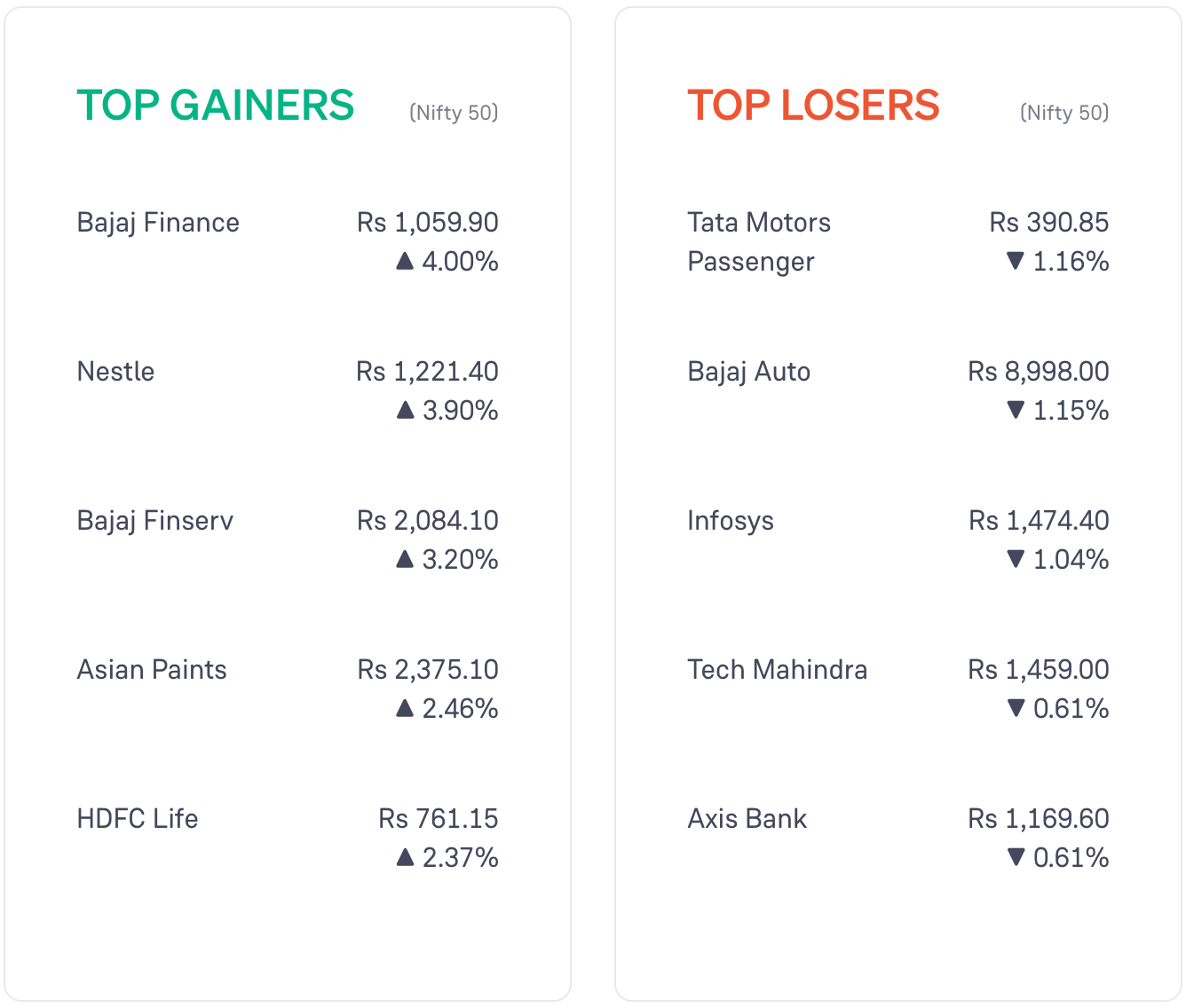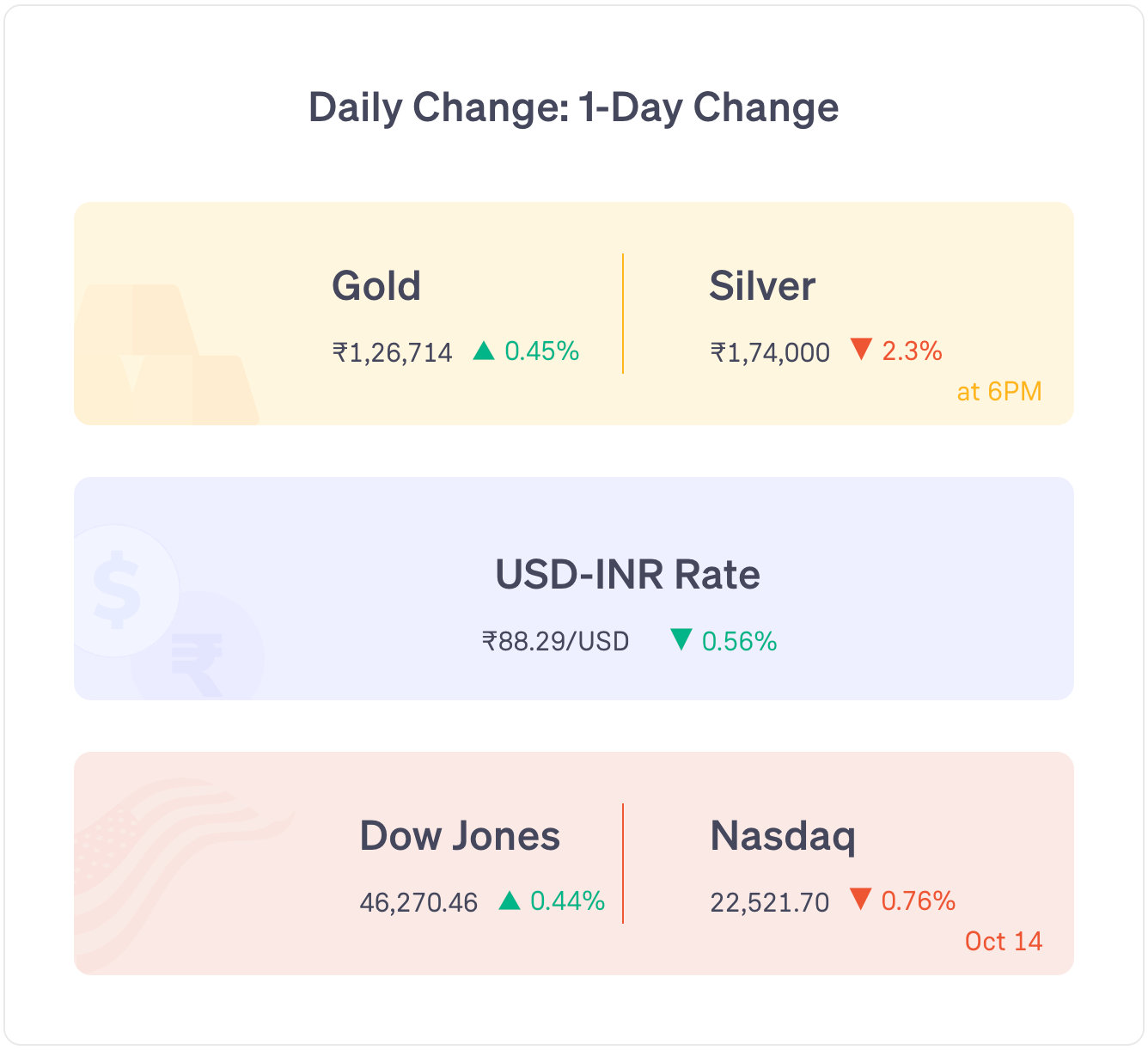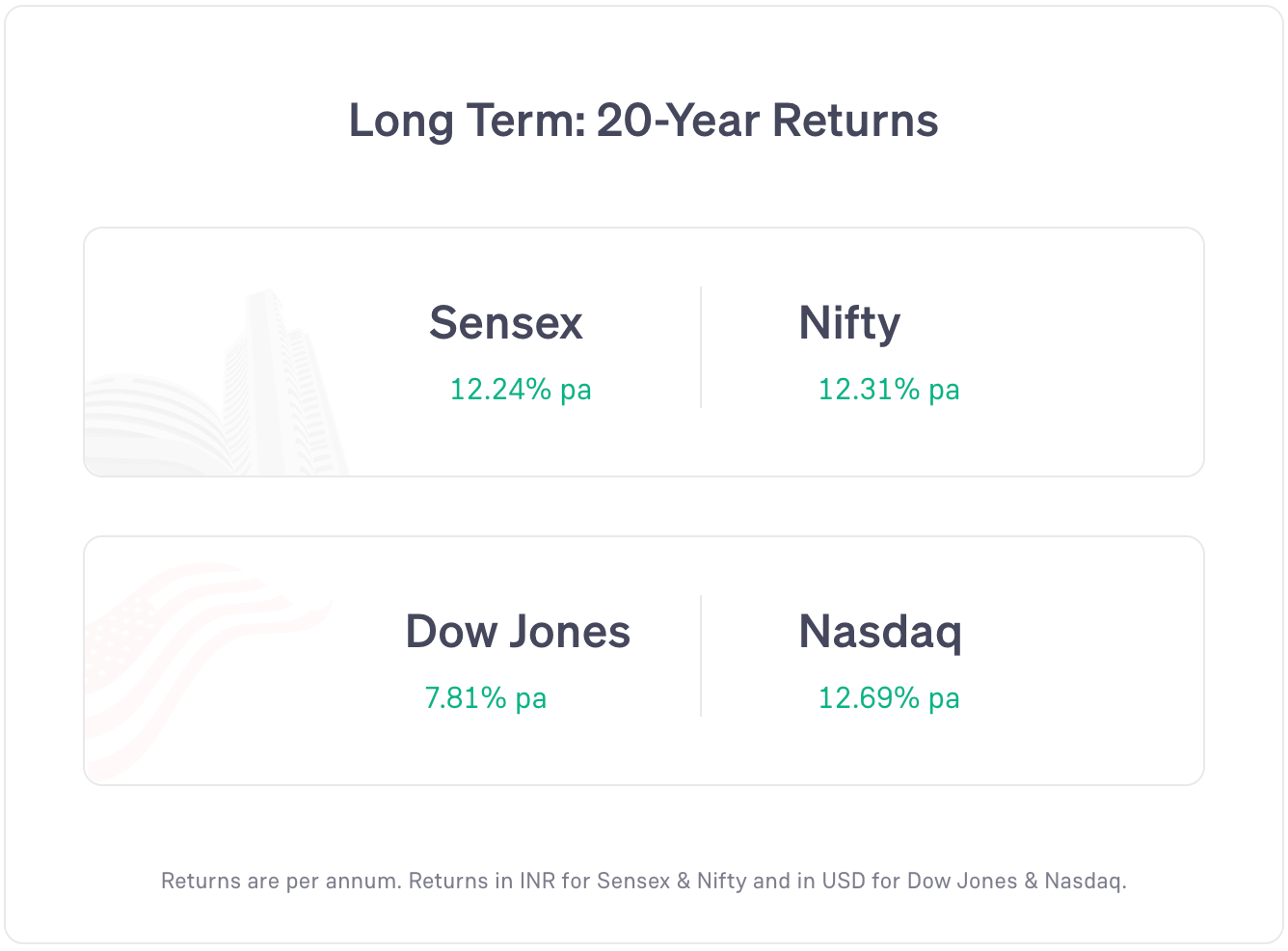Passenger vehicle sales rise, IRFC's Rs 1.05 dividend, & more - Groww Digest
Wednesday, 15 October 2025
Markets opened above yesterday’s closing point.
Nifty 50 rose throughout the day and closed in the green. The rise may have been driven by positive global sentiments after the US Fed hinted at possible rate cuts in October and December.
All sectors’ stocks rose today except for the media stocks. Realty stocks and PSU bank stocks rose the most.
Global markets: US markets showed a mixed trend. Asian markets and most European markets rose (as of 6 pm IST).
News
India’s trade deficit rose to $32.15 billion in Sept (vs $26.49 billion in Aug).
Exports grew 6.75% year-on-year to $36.38 billion and imports grew 16.67% to $68.53 billion.
India’s unemployment rate rose to 5.2% in Sept (vs 5.1% in Aug).
India’s passenger vehicle sales grew 4.4% year-on-year to 3.72 lakh units in Sept.
China filed a WTO complaint against India, alleging that India’s EV and battery subsidies provided unfair advantages to domestic industries and harmed China’s economic interests.
Stocks Updates
IRFC: net profit rose 10% year-on-year to Rs 1,776 crore in the July-Sept quarter. Dividend declared: Rs 1.05 per share; record date: 24 Oct.
Airtel: partnered with IBM to expand its Airtel Cloud platform with new AI cloud services.
Axis Bank: net profit fell 25% year-on-year to Rs 5,528 crore in the July-Sept quarter. Net interest income rose 2% to Rs 13,745 crore.
HDFC Life: net profit rose 3% year-on-year to Rs 448 crore in the July-Sept quarter. Net premium income rose 14% to Rs 18,871 crore.
HDFC AMC: net profit rose 25% year-on-year to Rs 718 crore in the July-Sept quarter. It also declared a 1:1 bonus issue; record date: 26 Nov.
Word of the Day
Privatisation
It is when a government company or service is transferred to a private ownership
The goal is to make the company more efficient, competitive, and profitable.
Privatisation can help reduce the government’s financial burden and improve service quality. But it might also make the product/service costlier.
Example: Air India was sold to the Tata Group in 2022.
6 Day Course
Theme: importance of timing in mutual funds
Day 3: Wednesday
In rare cases, timing can matter — when the share market rises or falls extremely sharply.
In those cases, even a single day can make a difference.
But such days are nearly impossible to predict. They usually happen all of a sudden.
Example: pandemic crash period (March 2020), Great Recession period (Sept 2008), etc.
Hence, in this case, you will be unable to time your investment.
One strategy to deal with such events is to simply spread out your investments over a large period of time.
Investing via SIP or via STP is effective in reducing this risk.
Other than this, there is no clear way of dealing with such market spikes in investing.
Features Question
Q. “Can you please explain how the expense ratio is deducted from mutual funds? Is it deducted monthly? Or is it applied when withdrawing funds from mutual funds?”This can be confusing — it applies every day.
It does not apply monthly, yearly, or when withdrawing.
Expense ratio is the fee a mutual fund charges for managing your money.
It is expressed as a percentage per annum.
Example: XYZ mutual fund has an expense ratio of 0.9% per annum.
This means that 0.9% of your total invested amount will be deducted as fees.
But, this deduction takes place every day.
So, (0.9% fees ÷ 365 days) = 0.0025% per day.
So, in this example, 0.0025% of the invested amount is deducted everyday.
This deduction is calculated using the investment’s latest value and not on the original invested value
Did you like this edition?
Leave a feedback here!





